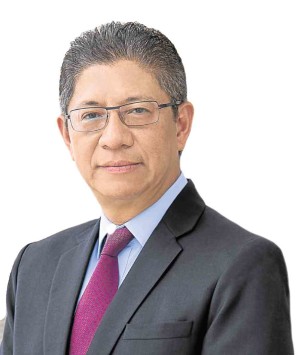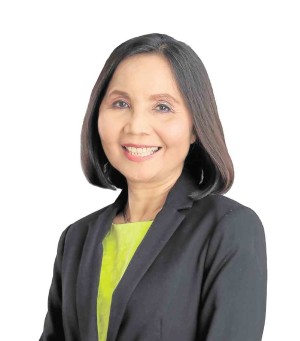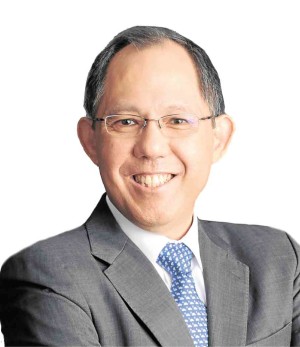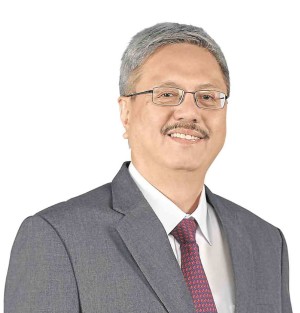CFOs list ways to deal with market volatility
(First of two parts)
Spooked by the increasing certainty of an interest rate hike in the United States and other geopolitical jitters, Philippine financial markets have taken a beating since the end of August.
Perceived as one of the most expensive stock markets in the region, valued at more than 18 times projected earnings for 2016 —the highest in Asia—the Philippine Stock Exchange Index has been battered by the pullout of foreign fund managers and the increasing shift to risk-free US Treasuries.
The Philippine peso was also one of the worst performers among regional currencies, breaching the 47-mark against the US dollar.
It is this kind of volatile environment that separates the men from the boys, so to speak.
As the chief executive officer’s co-captain in driving and executing a company’s overall strategy, the chief finance officer (CFO) must be able to spot the early signs of distress, and know how to steer the ship away from a potential crisis and toward safer ground, said ING Bank and the Financial Executives Institute of the Philippines (Finex), co-sponsors of the annual ING Finex CFO of the Year Award.
“The CFO’s role is more pronounced in a macroeconomic environment that has become more volatile, more global, and more interconnected,” said ING Bank Manila country manager Consuelo D. Garcia.
Governance champs
As the Philippine CEO of a Dutch global bank that has handled countless turnaround situations for clients in its 26 years of operations in the country, Garcia has witnessed firsthand the critical role that the CFO plays in various organizations.
Sitting on the board of judges of the Philippines’ longest running and only “CFO of the Year” search, which is now on its 10th year, Garcia occupies a ringside seat to choosing the best financial executive in the country each year.
“I’ve learned that there’s one main thing that a good CFO always does and it is enshrining a strong culture of ethics and compliance in serving the good of its stakeholders and the public,” Garcia said. “Good governance remains the hallmark of a good CFO and the strong anchor that holds the company’s ship steady and secure in the midst of a financial storm.”
It thus should come as no surprise that most of the ING Finex CFO of the Year awardees belong to companies that landed in the first Asean Corporate Governance Scorecard’s top 50 firms in the region with the highest scores in good governance. These companies have consistently raised the bar on governance practices such as upholding minority shareholder rights, equitable treatment, board responsibilities, and transparency.
The CFO awardees who come from publicly listed companies also believe their stocks offer the best valuations for stock market investors. And the correlation with good governance is no coincidence.
International management consultancy McKinsey & Co., in a 2000 survey of more than 200 institutional investors in the US, Europe, Asia and Latin America, provided evidence that investors consider governance practices as important as financial performance when choosing companies for investment.
“Call it the ‘governance premium,’ especially for Western-based institutional investors. They put a premium on companies with good governance because they believe that doing right will actually make the business much more sustainable and profitable,” said 2011 CFO of the Year awardee Jaime E. Ysmael.
Tips from award-winning CFOs
For CFOs navigating the business landscape with their CEOs to ensure that governance practices go beyond being a mere corporate box-ticking exercise, ING Finex CFO of the Year awardees offered valuable tips:
Set the right tone at the top.
As CFO of Manila Water Co., 2008 CFO of the Year awardee Sherisa P. Nuesa found herself knocking on doors in slum areas as part of company “sweeps” or inspections on communities that faced problems such as illegal water connections, poor collections, or major pipe bursts.
Being the only woman in top management then did not distract her from working directly with territory managers to pro-actively resolve issues that affected the water concessionaire’s more than six million customers in 23 cities and municipalities.
To engineer a successful turnaround for Manila Water after its privatization in the late 1990s, Nuesa took an active position in articulating the new management’s governance standards to its employees, of which about 90 percent inherited a culture of bureaucracy.
“I saw how trust, empowerment, and motivation molded them into a capable, cohesive, engaged and dedicated army, that made the turnaround possible,” she said.
For Nuesa, who still serves in the board of Manila Water as independent director and is currently the president of the ALFM Mutual Funds Group, this is part of having a “values-centered” approach to governance.
This means “setting the right tone at the top” by putting a high premium on the integrity of an organization and how employees will conduct themselves in an ethical way while ensuring they discharge their roles effectively, especially in relation to various stakeholders.
She said that a CFO who “walks the talk” plays a critical role in aligning the top to bottom behavior and actions through effective systems of management control, performance management, and training.
Empower your organization.
As soon as Luis Juan Oreta became Manila Water’s CFO and Treasurer, among the things he established was the Enterprise Risk Management (ERM) system, which strengthened the company’s risk management structure.
The system aimed to shift from a “reactive” stance—where actions are typically triggered by unforeseen events such as pipe bursts—to a proactive one.
“Beyond the scorecards and compliance, governance is the attitude of the owners, board directors, and everyone involved. It is trying as much as possible to work by consensus, not the overwhelming control to force your way; it is listening to everyone before making a decision,” said the 2015 CFO of the Year awardee, who spent six critical months at IMI during the 2008 global financial crisis before assuming the CFO position at Manila Water.
This empowering approach to governance is also mirrored in the boards of Manila Water subsidiaries, including in Laguna and Boracay, to instill accountability and transparency. Recently, the company also created separate audit and risk committees to properly delineate the two important, ever-growing functions.
Such headways enabled Manila Water to be acknowledged as among the most successful public-private partnership programs in the world, he said.
Adopt an open-door policy.
Being a broadcasting giant whose accountability is to the general public exerts a different kind of pressure on its CFO.
But for Felipe S. Yalong, executive vice president of GMA Network, Inc. and 2014 CFO of the Year awardee, honesty is still the best policy and the best governance tool.
While he is always passionate about numbers, Yalong said honest-to-goodness governance is something that cannot be simply quantified.
“Honesty is my core value. I make sure that I’m very honest with the way I deal with people, from our talents to our suppliers. Honesty took me a long way—from where I started, to all the way up,” he said.
GMA Network adopts an open-door policy, and this is also reflected in the way the company delivers its products (mainly news) to its audience.
“We’re a pretty straightforward organization, transparent from top-down. We place great value on fairness and accountability to the viewing public. We are proud to be the only media outfit that’s not identified with any personality or political party,” Yalong remarked.
Walking the hallways of the media giant’s headquarters, one can immediately spot the glass-encased drop boxes where anyone who has a complaint or who wants to report bribery or abuse can write directly to the chair.
“This serves as a manifestation of our whistleblowing policy. The drop box allows everyone to complain directly to our chair, who takes this matter seriously and personally attends to it,” Yalong added.
(To be continued)



